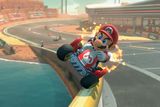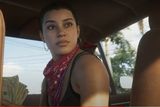Death Stranding 2 review: The very weird adventures of a delivery guy at the end of the world
Platform: PS5Age: 18+Verdict: ★★★★★
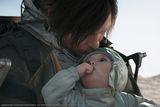
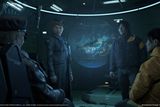
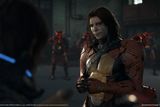


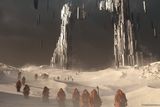

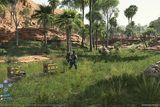


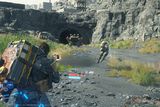


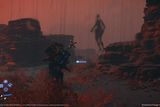
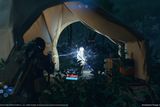

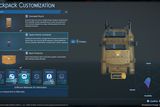
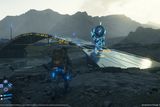
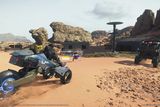
Horribly reductive as it may be, you can once again distil this extraordinary sequel by auteur designer Hideo Kojima to its essence – a hiking sim with occasional monsters and many “notions”. That might sound much like 2019’s expensive but eccentric original, which landed with eerie prescience just before the pandemic and pitched you as glorified delivery guy Sam Porter Bridges shlepping through craggy landscapes between isolated communities.
But Death Stranding 2 differs in important aspects, something that Kojima has acknowledged was in response to entirely valid criticisms that the first game was just too hostile to players.
For everyone who swooned over the starry cast caught up in a grandiose back story – creatures returning to the afterlife threaten a post-apocalyptic civilisation – many more people bounced off its interminable cut-scenes and opaque storyline. If the narrative didn’t dissuade you, you were equally likely to weary of the repetitive gameplay cycle in which you lugged tottering piles of luggage on your back for miles on end.
Kojima likes to say he doesn’t make games for everybody – that if he isn’t upsetting somebody, he’s doing something wrong. That remains the case with Death Stranding 2, which may have lost some of its edge relative to the rest of the gaming scene but continues to be pleasantly weird and engagingly experimental, especially for a mega-budget title made by a 150-person studio.
Consider the sequel to be an amplified, even more extravagant extension of the original’s basic premise in which Sam attempts to reconnect settlements to a primitive internet and deliver packages while infrequently eliminating spectral wraiths and nobbling bandits. Returning Hollywood luminaries Norman Reedus (of The Walking Dead fame) and Léa Seydoux (No Time to Die) rub shoulders with newcomers including Elle Fanning (A Complete Unknown) and film director George Miller (the Mad Max series) as the setting moves to the Australian outback.
In general, the troupe put in decent shifts, ably burnished by some amazingly subtle motion capture. Only the occasional line sounds phoned in – it’s hard to take Sam seriously when he arrives home early on after a catastrophic event to mutter: “Nobody here, maybe outside.” But then Sam as portrayed by Reedus is already a bit of a wordless cipher, the camera spending a lot of time admiring his muscular physique between missions.
Occasionally too, Kojima gives his characters some awful guff to say. There may have been a few secret eyerolls on set when Seydoux has to offer this choice bit of dialogue: “Together, we’ll show the world the hope in your rain”. But clearly Kojima liked his words so much he made an achievement with that title. Oh well.
A summary of the plot would neither do it justice nor make a lick of sense, involving as it does a baby in a plastic womb, tar currents beneath the Earth and rain that ages anything it touches. You’ll either buy into the lore that drives Sam’s journey or hover over the skip button during story dumps. Mercifully, Kojima has pared his indulgent tendencies somewhat and cut-scenes rarely stretch beyond a few minutes at worst.
That’s the least of the improvements, however, and the new focus on expedited travel coupled with compelling combat really elevates Death Stranding 2 to something irresistible.
While the complex logistics of cargo management still feature strongly, the early introduction of vehicles such as tricycle and a small van spare the player many hours of trudging with a teetering load through rugged terrain. Fast travel unlocks after a few hours, enabling Sam to mop up side-quests with a few clicks and a sigh of relief.
Diehard fans may bemoan such shortcuts but there’s nothing to stop them sticking to long, masochistic walks for traversal either.
Combat encounters gain a fresh urgency thanks to a diverse arsenal that empowers varying strategies ranging from stealth to sniping to point-blank shotgun blasts. The polish comes slightly undone sometimes when fighting the undead up close as the camera struggles to keep Sam in the frame.
Kojima hasn’t lost his predilection for pretentiousness nor the preposterous but in Death Stranding 2 he’s created a powerful piece of entertainment propelled by the sheer force of his personality. There’s probably no one else in gaming who could have got this made – layering the human need for connection with grand sci-fi themes and a satisfying gameplay loop.
We should all be grateful for his unique talent.

Have you tried Focail and Conundrum?
Daily word puzzles designed to test your vocabulary and lateral thinking skills.




















